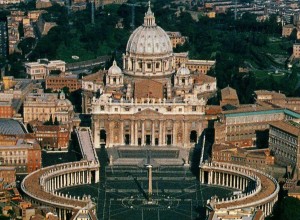 New possibilities opened up for plaintiff lawyers last week when a U.N. committee told the Vatican that clergy sex abuse is torture.
New possibilities opened up for plaintiff lawyers last week when a U.N. committee told the Vatican that clergy sex abuse is torture.
Whether an instance of clergy sex abuse is torture “is a factual determination to be made on a case by case basis,” said a member of the U.N. committee against torture on Friday. His comment amounts to a checkered flag for lawyers racing to find new avenues to sue the Catholic Church.
The determination that wrongdoing constitutes torture could have far reaching implications in countries where torture is considered a crime against humanity and not subject to any statute of limitations. It could be especially significant in countries where modern legal theories have been influential and international law is self-executing, as in most countries in Latin America.
The “Holy See is not in conformity with the obligations of the convention,” Felice Gaer told the press in Geneva, raising hopes that the U.N. torture convention will indeed become an opening for litigation against churches and even the Vatican.
Though not a lawyer, Gaer tried to use legal terms of art during a press conference when the committee published its written observations on the Vatican’s compliance with the U.N. convention against torture.
The Pope controls the actions of priests outside the “four corners of the Vatican,” Gaer said. The Vatican may be faulted on counts of failing to prevent or investigate child abuse, punish perpetrators and compensate victims, according to Claudio Grossman, the chair of the committee.
Earlier this month Gaer asked a Vatican representative in Geneva how much money the Church had available to compensate victims of clergy sex abuse.
She and her colleagues drew questions from information submitted by lawyers representing alleged victims of clergy sex abuse.
Even though the Pope only has spiritual power outside the Vatican City State the committee believes the Holy See has “effective control” of all priests and that the Pope is accountable for the actions of every clergy in the world. The committee rejected the Holy See’s declaration that the convention only applies to the Vatican City State.
The written observations of the committee are a roadmap for lawyers who want to argue that clergy sex abuse is a form of torture. The committee’s interpretation of the treaty also opens up the possibility of torture lawsuits against countries for sex abuse committed by schoolteachers or other public employees. Any wrongdoing that goes unpunished by a state is torture according to the committee.
Committee experts assured the press that “this is well settled.” But not everyone agrees.
This is “completely untenable,” according to U.S. legal expert Ronald J. Rychlak. The University of Mississippi law professor published an article in response to the committee’s observations last week.
Rychlak argues that the U.N. experts “defy all logic and legal analysis.”
In order for conduct to amount to torture the convention requires it to be carried out for a torturous or discriminatory purpose by a state official. While the committee’s argument is rooted in a well-intentioned attempt to make rape a crime under international law, Rychlack says the committee strays of course and undermines both international law and the rights of defendants.
The New York Times also reported that legal experts dismiss the committee’s interpretation as not carrying sufficient weight.



